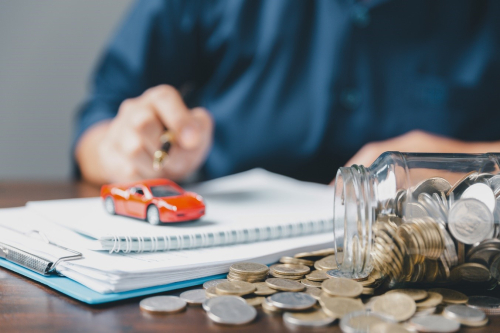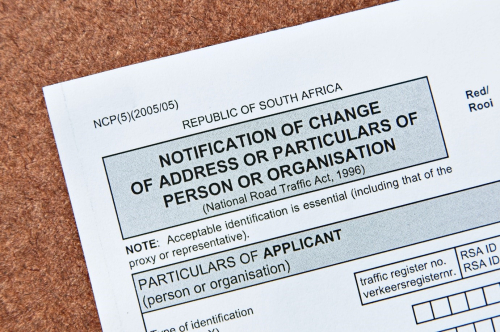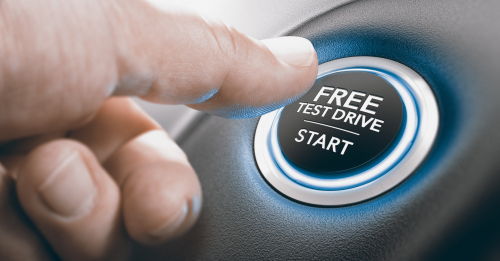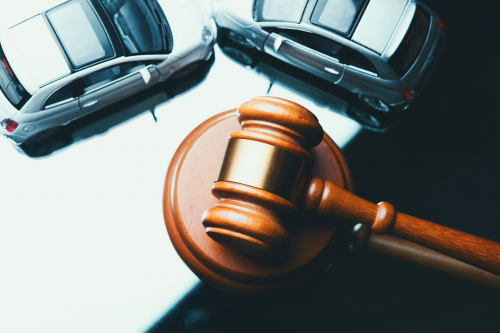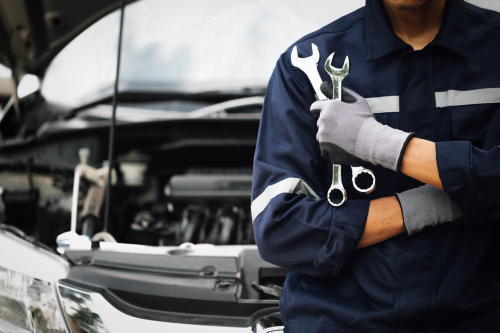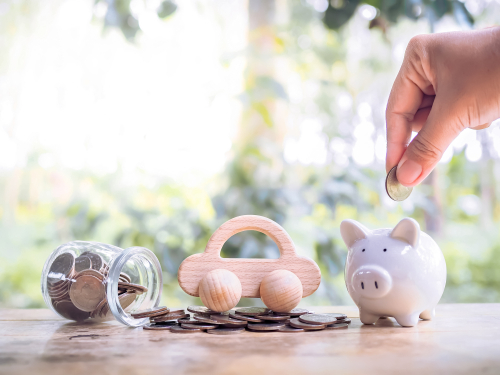Every month, around 30,000 to 40,000 vehicles are sold in South Africa. Most of these are used cars resold to a third, fourth, or even fifth buyer. But some cars sell better than others. With shifting demand and changing prices playing a big role in which vehicles are hot right now and which ones are struggling to sell, keeping up to date with the best sellers matters. But when looking for budget-friendly, affordable cars - especially those under the R200,00 mark - competition is fierce. Welcome to our Top 5 affordable used cars for sale in South Africa for under R200k – 2024 edition.
Most cars in SA go for anywhere from R300,000 to over R500,000. Financing is the only option for most South Africans searching for quality second-hand automobiles, and shifting economic conditions forcing many to look for cheaper choices. Unfortunately, most of us can’t afford these higher prices, with banks and credit institutions reluctant to help finance pricier rides. That’s why we’ve selected our top affordable used cars, all for under R200,000, that make getting behind the wheel of a quality used vehicle possible.
We check out 5 of our most popular and most affordable used cars for sale in South Africa, under R200,000, based on our own data. We unpack how popular they are at the moment, the most budget-friendly model options, their typical average price and the choices you have to pick from.
Why budget-friendly used cars for sale are so popular
With new car prices once again on the rise and increasing demand for vehicles, finding an affordable quality used car is becoming challenging. Even with a growing number of options on the table to shop for pre-owned vehicles – from social media marketplaces to car dealerships and online platforms – hunting down those second-hand automobiles that meet your needs is tricky.
Finding a car that checks all the boxes may be easy. But when it comes to finding one that meets your budget, things can get complicated, especially in these tougher economic times. Depending on the make, model, age and condition of the used car, along with your most important factors like fuel efficiency and maintenance costs, knowing which affordable used cars are the top contenders right now is always a good idea.
That’s why experienced pros like us at Auto Pedigree, with over 20 years experience in the used car game, are ideal for selecting and listing the most affordable used cars for sale in South Africa. We’ve got the perfect car for every budget.
Here are our top 5 picks.
Top 5 Budget-Friendly Used Cars for Sale in South Africa (2024):
We’ve chosen and listed our top second-hand automobiles for sale in South Africa for under R200,000. While some other car dealerships may charge more for more recent models, we understand that the R200k mark is pretty much the limit for many South Africans.
Although we’ve only selected five of our top picks for this list, there are many other budget-friendly pre-owned vehicles available in a similar price range that you’ve probably already heard about. The VW Polo, Suzuki Swift and Dzire are all in a similar price range, though not quite under the R200k mark.
You can check them out in our Top 10 Best Used Cars 2023.
These vehicles represent great value for money. Their lower price ranges mean securing financing for them is generally easier, maintenance costs are often lower, insurance is cheaper, and, when the time comes to trade in or sell, you won’t have too much trouble finding a buyer.
We’ve listed the year, model details, current prices and what we’ve found to be the best features and reasons to buy one of these easy-on-the-pocket rides.
Kia Picanto
With news that Kia will no longer be producing the popular Rio anymore, the Picanto has taken its place as the top-selling model of the Korean car manufacturer. As one of SA’s best-performing compact hatches in 2022 and 2023, the Picanto already has a strong presence on South African roads.
Year 2022
Model 1.0 Street
Price R187,995
Best for Students, 1st-time car owners & young professionals
Top features Very low fuel economy (5.0L/100km), loads of features & very popular
Packed with features like Bluetooth, electric mirrors and windows, and a built-in alarm/immobilizer, the Picanto Street is fast becoming one of SA’s most popular small used cars for sale. Boasting a great driving experience and comfortable cabin, it’s no wonder more and more young South Africans are hustling to get their hands on one.
Find a quality, low-kilometre 2022 Kia Picanto 1.0 Street right here.
Suzuki Celerio
The Celerio is an ultra-fuel efficient budget hatch that makes for the perfect 1st-time car for a matriculant or 1st-year university student. It's also ideal for the new professional entering the workplace or any 1st-time car buyer, really. Suzuki’s Celerio is the low-cost version of the ever-popular Swift, delivering comparative value for money and a refined driving experience for a lower price.
Year 2022
Model 1.0 GL
Price R171,995
Best for Anyone on a tight budget, daily commuters & as a 1st car for your kid
Top features Park distance control, easy to drive & low maintenance costs
With a 1-litre engine managing an incredible 4.4 litres per 100km fuel economy, this neatly packaged unit is easy on the pocket. It Delivers ample interior space and a comfortable cabin that punches above its low price, too. Used car buyers will be impressed with the Celerio’s hardiness and reliability, giving its Swift, Jimny and Ignis siblings a run for their money.
Check out our collection of 2022 1.0 GL Suzuki Celerios by clicking here.
Toyota Agya
Toyota’s entry-level Agya represents a fresh push by the Japanese car manufacturing giant into the budget car market. Light on its feet and boasting better-than-expected safety ratings for a car in this segment, the Agya is an excellent buy among many popular pre-owned vehicles if you want to save while still getting bang for your buck. And let’s not forget the full house of features, too.
Year 2022
Model 1.0 Automatic
Price R186,995
Best for Families, drivers in need of automatic transmission & new car owners
Top features One of the lowest prices on the market for an automatic vehicle
What really stands out about this offer is the fact that you can enjoy the benefits of an automatic transmission without having to shell out the extra couple of thousand Rand for the advantage of automatic drive. Anyone searching for a sub-R200k ride without having to change gears should look no further than this Toyota compact.
Find your 2022 Agya 1.0 Auto here.
Renault Kwid
We already mentioned the Renault Kwid in our 2023 Top 10 Used Cars report but couldn’t resist adding this model to our top 5 budget-friendly used cars for sale for under R200,000 list. The ever-popular Kwid packs some nice little extras, like attractive seat trim, gorgeous finishes and useful storage nooks that will ensure you won’t want to let it go in future. The crossover may not be a full SUV (even though it looks the part), but its 1-litre engine packs an impressive punch, helping the car live up to its name.
Year 2022
Model 1.0 Climber 5-Door
Price R169,995
Best for Adventurers, weekend getaways & outdoor enthusiasts
Top features Excellent fuel efficiency, high ground clearance & smart tech
With its contrasting colour palate and stylish trim, the 2022 Renault Kwid 1.0 Climber 5-Door is hard to miss. Those with an active lifestyle and anyone looking for a good ride to accompany them on weekend getaways will love the roomy 280-liter boot space, high ground clearance and modern features – all for a very, very affordable price.
Browse our inventory of 2022 Renault Kwid 1.0 Climber 5-Doors by following this link.
Hyundai i10
Our final entry onto the top 5 budget-friendly cars of 2024 for under R200,000 is the impressive i10 Grand Motion. It’s not surprising that we’ve seen so many of these little super-compacts zipping around – they’re one of SA's best-selling affordable cars. With so many flying off the shelf over the past few years, it was only a matter of time before they found their way back onto the market as second-hand automobiles at a price that’d make anyone smile.
Year 2022
Model Grand 1.0 Motion
Price R188,995
Best for Students, young professionals & families
Top features Excellent safety, good power-to-weight ratio & easy to maintain
Hyundai’s brilliant i10 is developing a reputation for being able to rack up the kilometres on the odometer without tossing up any trouble at all. In fact, the numbers point to people holding onto these cars for quite a bit longer than average. Since taking over from the successful Atos, the i10 provides an updated features set that keeps pace with the stiff competition around it and keeps pace with its famed big brother - the i20.
Get your hands on the 2022 Hyundai Grand i10 1.0 Motion here.
Important Considerations When Buying a Used Car
While these cars on our top 5 list are outstanding contenders in the budget-friendly, sub-R200k category, every one of these pre-owned vehicles is different. Understanding how to spot second-hand automobiles that have been well taken care of, regularly serviced, and are still in good condition, no matter how popular the model may be, means taking note of some important factors.
Always ask for vehicle history reports
If a used car doesn’t come with a record of its history, think twice. Vehicle history reports include service histories, a record of any accidents the car was involved in and – at the very least – general information on the previous owner.
Most reputable and trustworthy sellers will make sure that their used cars for sale come with these vehicle history reports which will tell you if the car is worth buying or not. Simply ask for the seller to provide them.
The car should come with logbooks, service history reports and relevant paperwork.
Consider using car dealerships you can trust
Whether facing the risk of somebody running off with your deposit or ending up with a rust bucket that falls apart on day one, be smart when choosing who you’re buying your used vehicle from. Making use of private sellers you find on Gumtree or Facebook is very risky, not to mention potentially dangerous. Plus, if something goes wrong, you’ll have a hard time getting your money back.
Reputable car dealerships and companies whose business is pre-owned vehicles are a much more reliable bet when looking for a safer, more stable option. Aside from knowing where to return to if you’re not happy with your new ride, car dealerships also offer value-added services and most of them service, repair, and maintain their used cars for sale as a standard policy.
Remember. If a deal seems too good to be true, it probably is.
Always take a test drive
Test-driving a car before buying it is vital to helping you make an informed decision. While a car may look great online, match your needs and offer low mileage, the only way you’ll know for sure if it’s right for you is by getting behind the wheel to take it out for a trial run. If a seller refuses or is reluctant to let you test drive the wheels, ask them why.
Test drives will tell you if there is anything wrong with the car. The drive may feel strange, or a weird sound may let you know that not everything is as it seems. Test drives also allow you to try out the car’s performance, check out its features and see if you’re comfortable driving it.
Don’t skip the test drive. You can book them directly through most car dealerships.
Finding your ‘Top 5 Car’
There are hundreds of different car makes, models and options out there. Having so much to choose from is great, but it can also make it tough to pick the right set of wheels for you. Every year, new models are released by manufacturers, older models get put up for sale, and your options increase. So, don’t just settle for any old ride – pick one you know will deliver on expectations and make you happy.
Used car specialists like Auto Pedigree understand that affordability matters, but so does quality. That's why we're here to help you save on your used car purchase. We've even got amazing deal assistance programs to help you make it all possible.
In the ever more competitive South African second-hand automobile market, knowing who to turn to in your search for quality pre-owned vehicles that are genuinely affordable means understanding who you can count on – and who you can’t.
Browse the extensive selection of Auto Pedigree's used cars for sale, ranging from fuel-efficient hatchbacks to spacious sedans, all meticulously inspected and ready to hit the road. Their friendly sales team is here to answer your questions and guide you through the buying process. Schedule a test drive today and find your perfect car!
Contact Autopedigree.co.za now!





